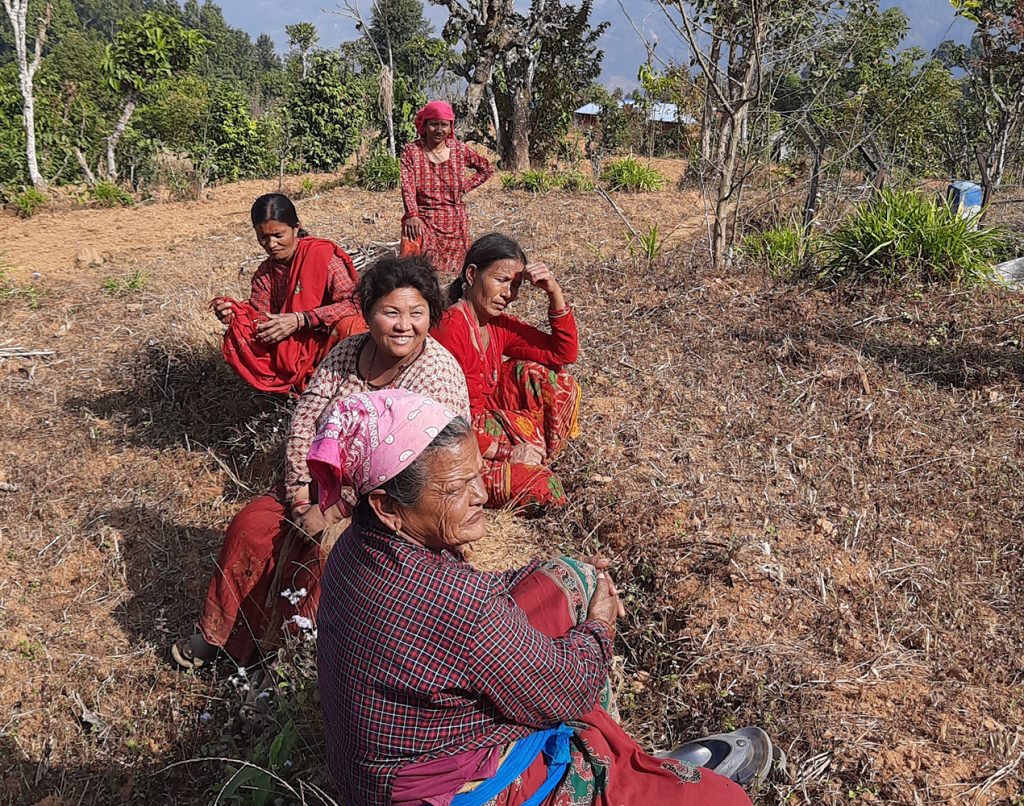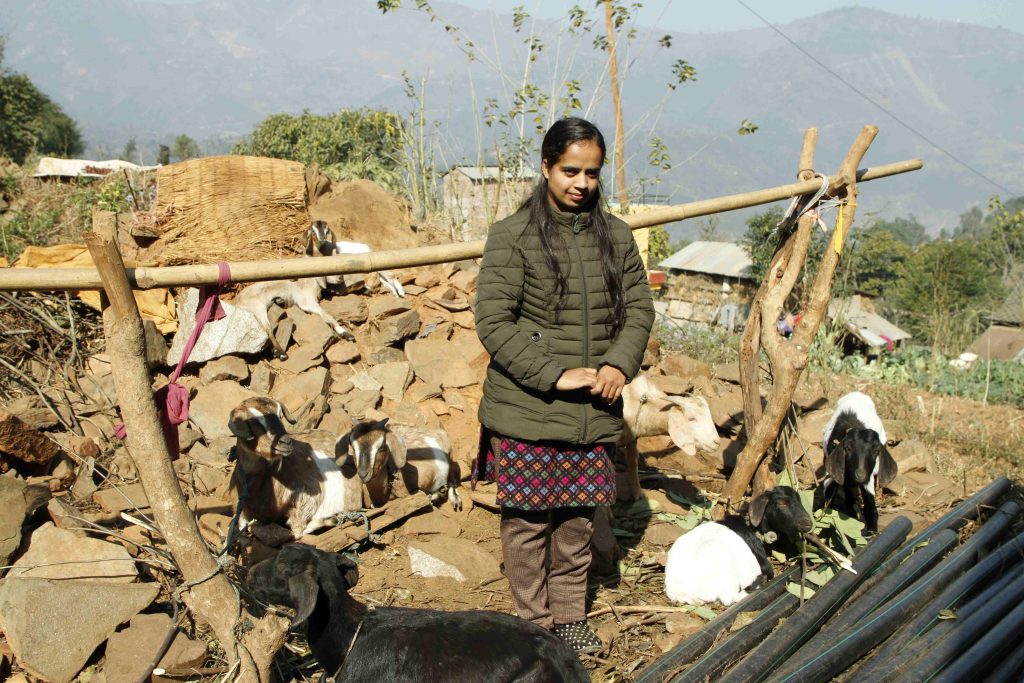Felm Nepal’s Program Manager Reejuta Sharma visited a development project that had finished more than a year ago. At first, she was nervous, but during the trip, her feelings totally changed. She wrote a blog about her experience.

The new year 2023 began with an official tour for me. On January, I started on a 10 days trip to Dhading and Gorkha districts, within 100 kilometres west from Kathmandu. I was accompanying an evaluation team deployed by the Social Welfare Council, an apex body of the Government of Nepal, to evaluate Felm Nepal’s past Development Cooperation Project. The project was a five-year project implemented from November 2015 to June 2021 in 20 districts in Nepal.
Nothing excites me more about my job than meeting local people, and listening to their stories – stories of grief, sorrow, happiness, joy, and most importantly, stories of their empowerment. I was very excited to meet and interact with key beneficiaries, especially women, children, people with disabilities, and most vulnerable and marginalized people that have benefited by the project.
I was also thrilled to meet local government authorities and hear their perspectives on how the project had contributed to bigger goals and plans of the government in ensuring sustainable development at the local level. Most importantly, I was eager to see the results that our project has brought at the local level.
However, I must admit, I was quite nervous in the beginning. As I was accompanying a team led by the government, I wasn’t sure if we could meet project beneficiaries and see project’s outcome and results, as anticipated by the project. I had the fear because the project had ended one and half years back. The delay in evaluation was due to COVID-19 pandemic and some policy changes of the Government of Nepal.
But in a way, the delay in evaluation turned out to be good for us. It showed that that the project was successful and running, not only during the project period, but years after the project ended.
Project ended, activity remains
To my surprise, the activities and local structures such as farmers’ group, women’s group, and community health units, initiated by the project, were still functioning, years after our project had ended. In fact, these were not just functioning well, but were managed collectively by the local communities, with the support of local government.
For example, the community health unit established by the project was now being managed by the local government and the local people were still benefitting through its service. This is something I was really proud about the project. To me, sustainability of the project is as important as anything.
Likewise, the women’s group, group of people with disabilities, and farmers’ group formed by the project, were now registered with the local government. They were even successful in getting agricultural and livelihood support, both cash and in-kind support in the form of cattle, seeds, and so on, from the government.
It must be noted that it is not an easy task to be registered with the government. The whole process is long and requires good documentation and communication skills. I was happy to hear that the whole process of registering the local groups in the government system was led by the local people themselves. For me, this is a big change in itself.

“Now, I can fight for my rights”
One of the members from the group of people with disabilities said in our meeting: “Before the project, I was not event able to speak in front of others. Now I can fight for my rights”. Another, Januka Subedu, a young woman with disability of 25 years said: “Whatever I am today is because of this project”.
She is also a member of the group for people with disabilities. She received on-the-job training during the project, and she is now a raising 8-10 goats, and some 4-5 cows, and buffaloes, and making a steady income for her family. This is something I was very amazed to see. She is an inspiration for local people in her community now. This was a matter of pride, not just for herself, but the whole disability group, local community, and us.
Another woman with disability said: “I cannot imagine myself being where I am today”. Radhika Subedi, 22, just completed her Bachelor level studies and has successfully secured a job position in a reputed national government bank, Agricultural Development Bank in Dhadhng. This is indeed a great achievement for her. I was extremely to meet her, and listen to her story, while enjoying a hot tea during a cold morning in January.
This trip has given me more hope and motivation to continue my work in development sector, as I have been doing so since last 18 years. I want to thank all those people and communities for giving us their time and welcoming us to their homes wholeheartedly.
Text: Reejuta Sharma
***This work is done with support from Finland’s development cooperation.***